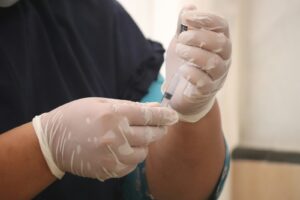NHS facing imminent staffing crisis
The NHS is facing an imminent staffing crisis in the wake of the coronavirus pandemic due to a shortage of doctors, a report by the Institute of Economic Affairs reveals.
Report author, Mark Tovey, says that importing doctors from abroad will be essential in combating the fallout from the pandemic, which threatens to increase the demand for health services at the same time as reducing the resources available.
The UK relies more heavily on foreign-trained physicians than comparable countries: 37% of doctors in the UK qualified abroad, compared with 25% in Canada and the US, 12% in Germany and 11% in France.
Importing doctors from abroad will be essential in the short term, but Mr Tovey warns it will be increasingly difficult to meet demand in this way and predicts a shortage of 400,000 doctors by 2030. Meaning, the international market for doctors could, in turn, become fiercely competitive.
At the same time, rapid economic development in Asia is likely to reduce the ‘push factors’ that have made dependence on foreign-trained doctors possible. For example, India’s burgeoning private healthcare sector is providing more high-quality jobs than ever.
Meanwhile, homegrown talent is moving overseas, with the UK losing 4,144 doctors to Australia, Canada, the USA and New Zealand between 2013 to 2017.
These pre-existing trends could be exacerbated by the Covid-19 pandemic, which could lead to an increase in public debt burden, while economic contraction may reduce the resources available to the health service.
However, Mr Tovey says there are options to blur job boundaries and tackle pressing shortages, such as addressing where professional protectionism is blocking non-medics from upskilling and lightening doctors’ workloads in key shortage areas.
He says more extended-nursing posts could be opened up for direct entry to graduates with degrees in biological science subjects.
While accessible, fast-track training pathways to clinical psychologists and biomedical scientists could be introduced to take on tasks traditionally considered to be within the physician’s protected sphere.
Prescribing rights could be extended through the removal of legislative barriers. And we could create incentives to plug speciality gaps through pay differentials.
He said: ‘Currently, the law prevents many dedicated health professionals from stepping up and lightening doctors’ workloads, simply because they do not have the correct job title.
‘At the same time, thousands of biology graduates are ending up on the scrapheap of unemployment, when they could be fast-tracked into frontline clinical roles.
‘It’s high time the NHS kicked out the jobsworths and upskilled its brightest and best, to bring down cancer waiting times, tackle the crisis in mental health and abate the looming global doctor shortage.’
Responding, a Department of Health and Social Care spokesperson said: ‘Thanks to the hard work of NHS staff our NHS was not overwhelmed during the first wave of Covid-19, and the NHS continues to receive the support it needs.
‘There are now record numbers of staff, including 2,119 more consultants, 13,718 more nurses and 7,810 more doctors than last year, with thousands more on the way following our expansion of medical school places and record numbers of people starting nursing courses.
‘This government is delivering on its commitment to have more people on the frontline of the NHS by doing everything we can to attract and retain our brilliant NHS staff, grow the workforce and make the NHS the best possible place to work.’
Photo Credit – Pixabay
















